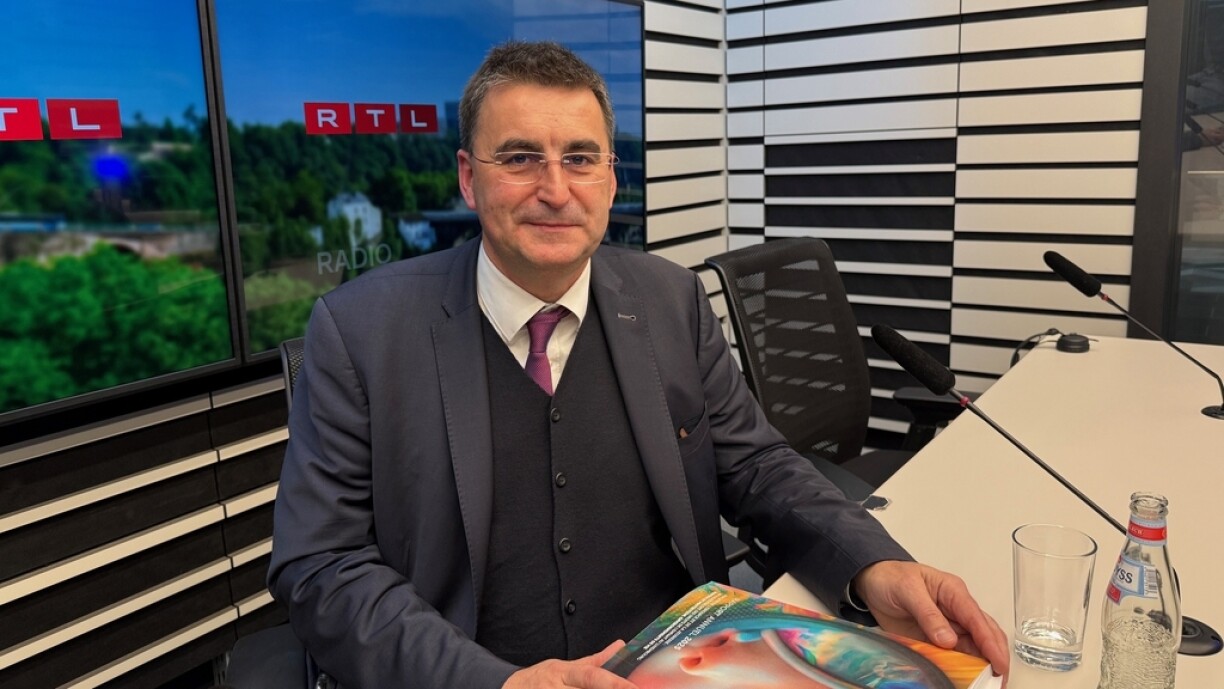
The Ombudsman for the Rights of Children and Adolescents (OKAJU), Charel Schmit, has used the presentation of his annual report to call for stricter regulation of the pornography industry and a tougher approach to child sex offenders.
Following his address to the Chamber of Deputies on Monday, Schmit told our colleagues from RTL Radio that global porn platforms are rife with “too many flaws in the system.” He criticised these “not very clean” companies, some of which have a financial presence in Luxembourg, for allowing young people to access explicit content far too early.
Schmit expressed strong disappointment that the European Parliament recently rejected the “Omnibus” directives, which would have classified such platforms as a high-risk sector under supply chain legislation. “This is a failure and a great disappointment for all defenders of human and children’s rights”, he stated. Given this setback, he argued that “the Luxembourg national legislature [must] take this up and define this sector as high-risk and hold it accountable, in order to clean up its platforms and block access for minors”, rather than relying on voluntary commitments.
Separately, the Ombudsman advocated for a more rigorous approach to suspected paedophiles and child sex offenders. When asked about a high-profile case from earlier this year, Schmit stated that he “does not address individual cases or comment on court decisions.” The child sex offender in question had taken photos of his own daughter and shared them on the internet, along with his fantasies. According to information available to RTL, the girl is still living with her father.
Schmit warned that the risks associated with consuming child sexual abuse material are often “downplayed” and described as “passive consumption” – a myth his office has published a note to deconstruct.
“These individuals pose a real danger to their family, social, and professional circles”, Schmit stated. He proposed that the law should mandate “an immediate risk analysis if the IP address used to access this type of content can be attributed to a natural person.” In such cases, the OKAJU’s view is that the individual should immediately be barred from having contact with children.
Schmit advocated for a ban on screens for children under three and for Luxembourg to consider setting a minimum age of 15 for social media access.
He clarified that such a proposal, which he put forward for discussion, is not about policing homes. “It’s not about sending the police or the public prosecutor’s office into games rooms or bedrooms”, Schmit said. However, he emphasised the urgent need for action, noting that “today, content that no one would want to see in the family living room is circulating in children’s bedrooms via social media.” Doing nothing is therefore not an option, Schmit added.
The report also highlighted child poverty as a critical danger. Schmit cited that one in four children in Luxembourg lives below the poverty line, with 8% suffering from material deprivation, often linked to inadequate housing.
“Luxembourg is also the sad leader in Europe when it comes to the working poor”, Schmit noted, pointing out that 11.5% of households depend on the cost-of-living allowance. Additionally, 7% of children – or 1 in 14 – have parents receiving the Social Inclusion Income (REVIS). “This means that in every school class, there are children who depend on social assistance”, he explained, adding that single-parent families are disproportionately affected.
To address this, Schmit proposed reversing the logic of child maintenance payments. He argued that the state, rather than the individual parent, should be responsible for recovering payments from non-compliant parents. “It is the role of the state, not a single individual, to recover child maintenance from those who shirk their responsibilities”, he stressed.
Finally, Schmit advocated for children to have quicker access to legal aid, suggesting they should be able to consult a specialised lawyer without first needing a judge’s approval.